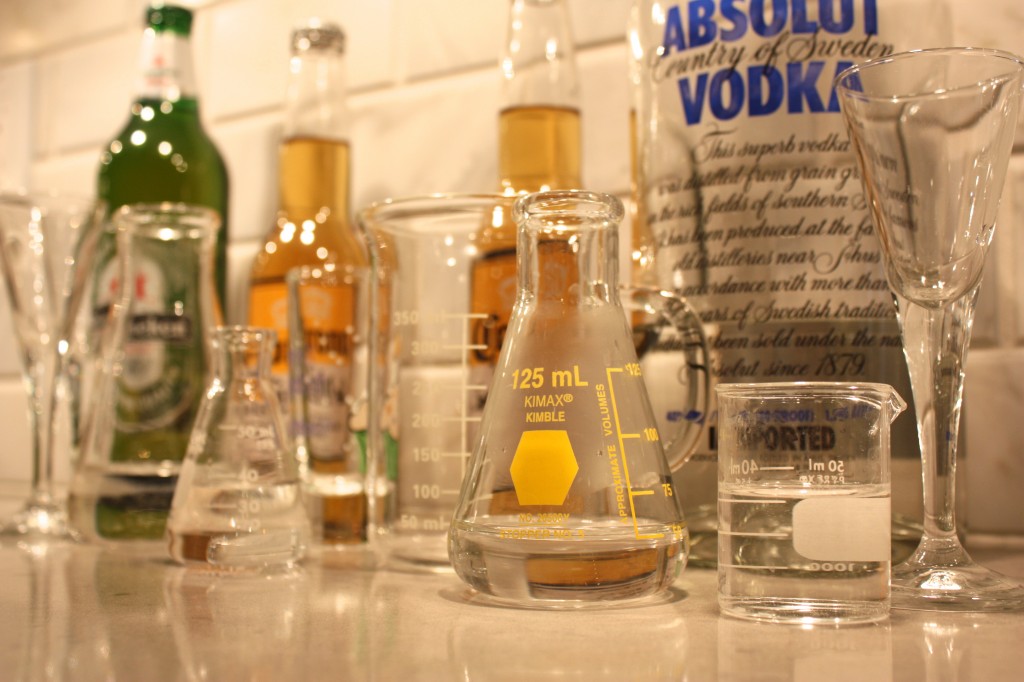By Edgar Villaruel | UTS Staff Writer | SQ Online (2013-14)
One event that all UCSD students look forward to is the annual Sun God Festival. It is a time to have fun with your friends, enjoy great music, and, most importantly, release all of this year’s stress caused by studying all night for midterms or whatever else UCSD has thrown at you. So get excited and be prepared because the 32nd annual Sun God Festival is almost here!
Unfortunately, coming into this year, there was a possibility that the festival may be removed due to last year’s hospitalizations, which were mostly linked to alcohol consumption.
The Sun God Festival homepage states, “Alcohol consumption has resulted in not only rising detox admittance, but also 48 hospitalizations. A handful of these were near death and nearly all were due to heavy, rapid consumption of hard liquor.”

The entertainment that the Sun God Festival brings to UCSD is a cherished campus tradition that is threatened to be cancelled. But the problem has a simple, clear solution: To drink responsibly. Maybe that phrase alone is not enough. Let’s turn to science to explain the dangers of alcohol consumption and its solution.
How Alcohol Enters and Leaves the Body
When consumed, alcohol acts as poison that the body works to remove. After the alcohol is absorbed, the liver is then responsible for “sobering you up” and metabolizing the alcohol. A liver enzyme called alcohol dehydrogenase is released and breaks down each alcohol molecule by removing a hydrogen atom, which produces a non-intoxicating acetaldehyde. Then, aldehyde dehydrogenase is released to clean up the mess and break down the newly formed acetaldehyde.
In general, the liver can process one ounce of liquor (or one standard drink) in one hour. If you consume more than this, your system becomes saturated, and the additional alcohol will accumulate in the blood and body tissues until it can be metabolized. This is why taking multiple shots or playing drinking games can result in high blood alcohol concentrations that last for several hours.
Dangers of Common Alcohol Practices
Drinking On An Empty Stomach
Drinking alcohol on an empty stomach can be quite dangerous. Approximately 20 percent of alcohol is absorbed through the stomach and the remaining 80 percent is absorbed through the small intestine. Alcohol enters the bloodstream through the stomach and small intestine. Alcohol is a water-soluble molecule and thus it can easily cross cell membranes. The blood then carries the alcohol throughout the body, which enters the tissues of the body. Once inside the tissues, alcohol exerts its negative effects such as slurred speech, impaired judgement, and distorted vision and hearing.
Therefore, if a meal is consumed before alcohol, this helps reduce the effects of alcohol. But it is not because the food “soaks up” the alcohol. Instead, it is because the stomach has something called the pyloric sphincter, a release valve into the small intestine, which closes tightly when a meal is consumed. Since your stomach is occupied after a meal, the pyloric sphincter is tightly closed and the stomach enzymes, which also includes alcohol dehydrogenase like the liver, have more time to break down alcohol before it reaches the small intestine where a majority of alcohol is absorbed. So, if one does decide to drink on an empty stomach where the pyloric sphincter is open, the liquid would easily move into the small intestine, where there is more than 200 square meters of surface area for alcohol to be absorbed throughout the body’s tissue.
Mixed Drinks
Another practice that should be avoided is mixing certain alcoholic beverages. After all, there is the famous saying, “beer before liquor, never been sicker; liquor before beer, you’re in the clear”.
If one drinks liquor (~45 percent alcohol) before beer (~4.5 percent alcohol), one is likely to feel the effects of the alcohol sooner due to liquor’s higher alcohol content. This may encourage one to not consume as much alcohol, decreasing the chances of excess consumption. If, on the other hand, beer were consumed before liquor, beer would have a less of an immediate effect. As a result, one may be tempted to consume higher concentrations of alcohol in quicker succession by mixing stronger drinks. The bottom line is that the amount of alcohol consumed in a specific time frame is what largely determines the level of intoxication.
Hangovers
Drinks that contain high quantities of congeners may increase hangover symptoms. Congeners are the toxic byproducts produced during the fermentation of alcohol that are known to cause hangovers. One should keep in mind that clear beverages like vodka, gin, and white wine contain less congeners than darker drinks like brandy, whisky, rum, and red wine.
What Happens When Your Stomach is Pumped?
Let’s say you disregard the above information and risk your safety to the point where you black out and have your stomach pumped (accounting for 95 cases at last year’s Sun God Festival). In case you were wondering, this is what will unpleasantly happen:
“Once a patient is intubated, a different, smaller tube is inserted through the mouth or nose, then threaded through the esophagus and into the stomach. The tube is placed on suction, which decompresses the stomach and greatly reduces the risk of vomiting. Even if the patient does throw up, their trachea (i.e. their airway) is largely protected because the breathing-tube is taking up most of the room.”
Alcohol poisoning, getting your stomach pumped, and blacking out also can all have negative long-term effects. For example, once a person begins to experience “blackout” episodes, evidence suggests that it actually becomes easier and easier to revert to that state.
How Can Science Help Save Your Safety and the Sun God Festival?
So, what does science then say about the solution to saving yourself and the future of the Sun God Festival? If you drink, drink on a full stomach because it reduces the rate of alcohol absorption. Avoid mixing alcoholic beverages, but more importantly, avoid the temptation of over consumption. Lastly, since it takes one hour for your liver and its enzymes to clean up approximately one standard alcoholic drink in your body, pace yourself, know your limits, and drink responsibly.
Fellow Tritons, Saltman Quarterly wishes you all a happy and safe Sun God Week!
Visit the Sun God website for safety tips for the upcoming Sun God Festival!
